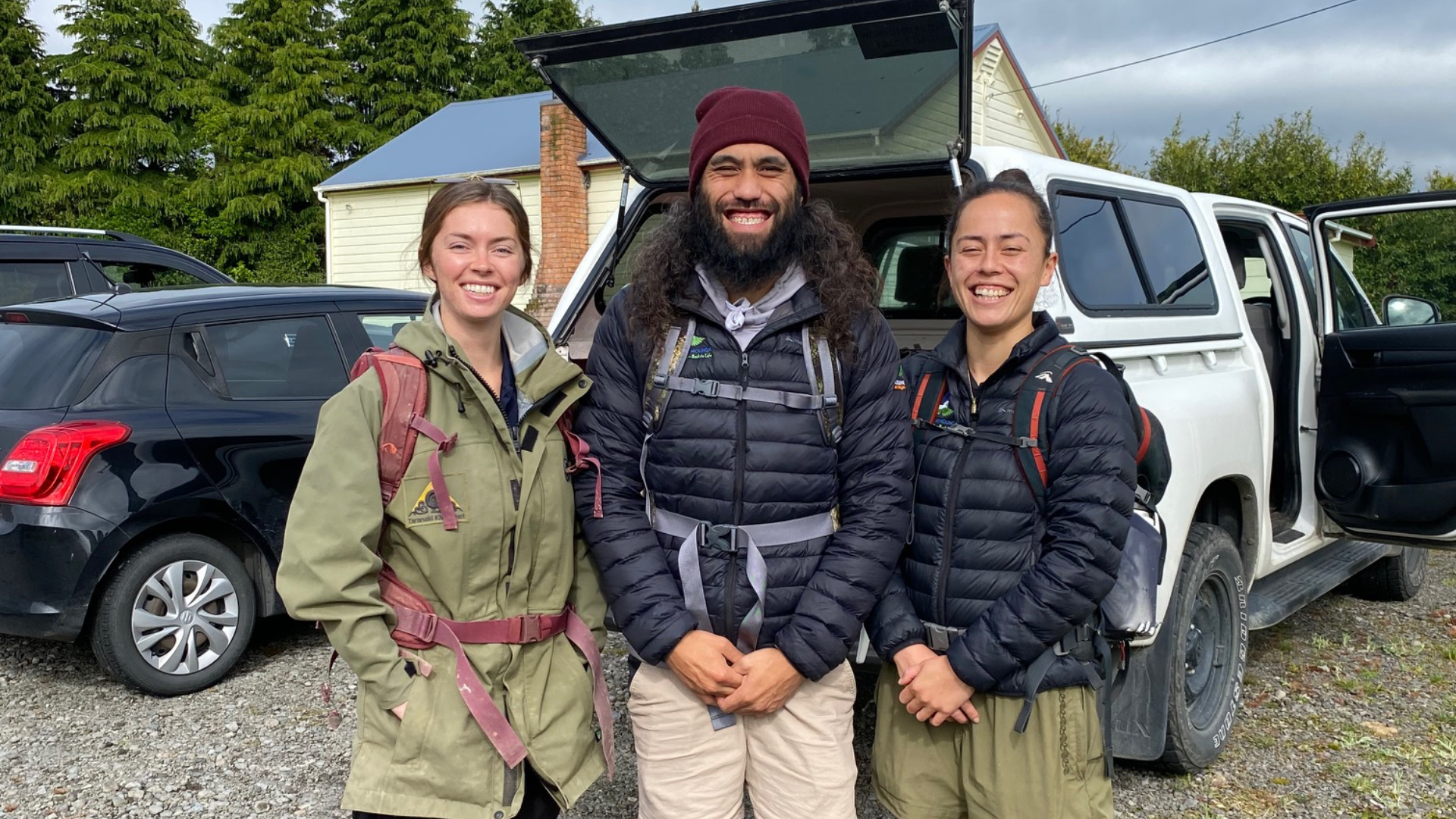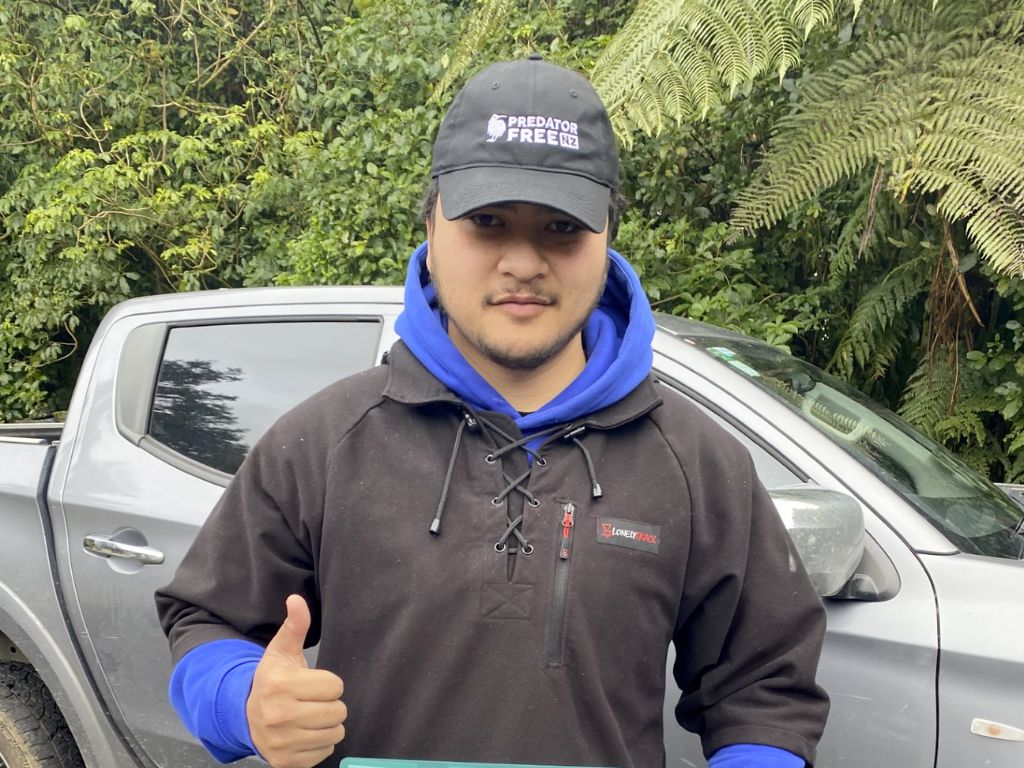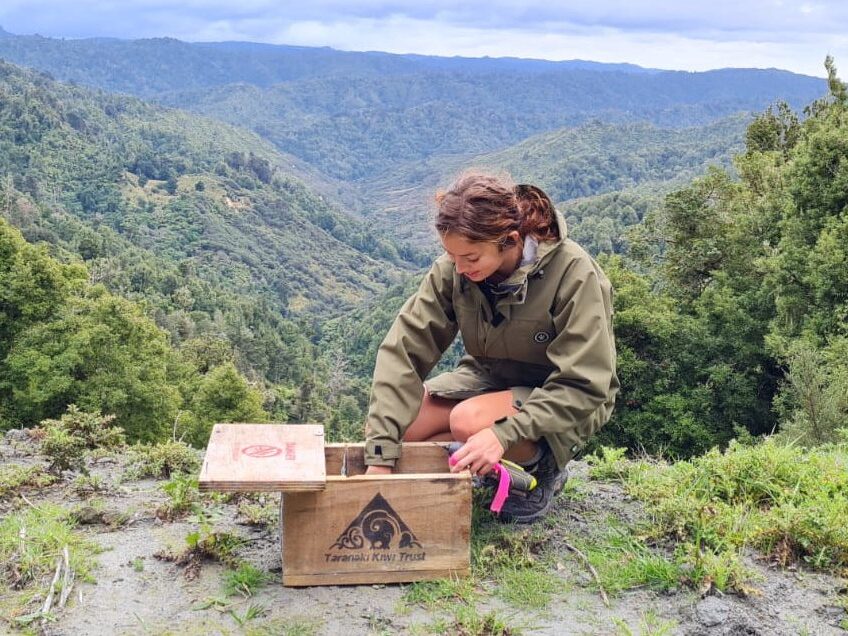Four Predator Free Apprentices have graduated in tandem, and the future of conservation in the region is looking brighter than ever.

Mereana Hanrahan feels she’s come a long way in her apprentice journey.
“My knowledge has grown in so many ways – from operating a GPS, reading the land and identifying trees and manu. At the moment, I’m organising our crew for monitoring toutouwai (North Island robin), and when I first started, I was a helper with that project, so it feels like I’ve come full circle,” she says.
Mereana, along with Mawene Bidois, Jarvis Edwards and Māia Gibbs, recently graduated from the two-year Predator Free Apprentice Programme, run by the Predator Free New Zealand Trust and funded by Jobs for Nature. They join Tipunakore Rangiwai, as graduates from Taranaki Mounga Project. Māia, meanwhile, has found her calling with the Taranaki Kiwi Trust.
Mereana says she’s gained a more realistic outlook of the mahi involved now than when she started.
“I still love it, even though I know it’s hard work. It’s treasuring the skills that we’ve gained and being capable of so much in the taiao space, and there is still lots to learn.”
For Mawene and Jarvis, the true highlight has been the relationships they’ve formed, meeting people from other organisations. “It has opened up heaps of doors, it’s not just about trapping,” says Jarvis.
Mawene says their relationship skills have developed through connecting with other groups, including iwi, restoration groups at Maungatautari Sanctuary and Zealandia Wildlife Sanctuary, as well as with kaumatua.
“I consider them all my whanāu. We’re all doing the same mahi, though in different locations.”
He adds, “I’ve come out way better than when I started this. Just being out in the field and in my conscious being, I’m way more in touch with the whenua. For example, I didn’t use to hear the birds, but now I do, and I can pick out individual species.”

Taranaki Mounga Project Operations Manager Ngahina Capper says it’s a great achievement seeing the apprentices complete the requirements, including the study component at Te Pūkenga/Witt.

“Creating opportunities is central to our project, and the apprenticeship is part of that. They have bright futures ahead, and we see them all as pivotal in terms of our succession modelling.”
Taranaki Kiwi Trust manager Celine Filbee says she is thrilled with the programme.
“Māia came to us as a novice, but she had absolutely the right attitude. She is now a thoughtful, efficient and diligent trapper with many other skills in her bow, including a kiwi handling accreditation.”
Growing the next generation
Predator Free NZ Trust CE Jessi Morgan says the Taranaki region responded in a big way when the call went out for predator free apprentices more than two years ago. “At one point, we had eight apprentices based around Taranaki.
“Before the Predator Free Apprentice programme, there wasn’t a clear way into a predator control and conservation career.
“But, helping and nurturing young people to get their hands dirty on their own whenua, with real-life experience and on-the-job training to protect vulnerable native species, has been a big hit.
“We have made predator control a viable and attractive career path for young people – otherwise, we will have nobody to deliver the mahi for a predator free Aotearoa by 2050.”
About 65 apprentices will graduate by mid-next year.

